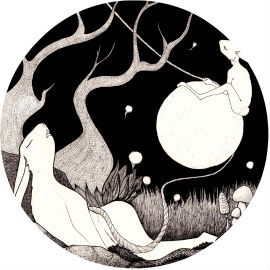Today is the first day of the endurance cycling season in the Netherlands, so all around the country cycling enthusiasts are hitting the roads. In the Netherlands, endurance cycling is more than a national sport. Everyone knows that Amsterdam is the city of bicycles, that a bicycle is part of a Dutchman. As essential to their daily lives as bread and cheese. Perhaps less well known outside the Netherlands is the strong link between cycling and literature, the existence of a tradition of cycling literature that has spawned well-known classics, and of a contemporary cycling literature supported by at least two cycling literature magazines.
A local rider and reader tells me that it’s possible the strong link between cycling and writing emerged as a result of the socio-hisotrical links between the sport and literacy, particularly in the south. Cycling, and particularly endurance cycling, he tells me, is traditionally the sport of the working class. A democratic sport open to anyone who owns or can beg, borrow or steal a bicycle. A cyclist trains and competes on public roads. Importantly, the rise of endurance cycling as a high-profile sport occurred over roughly the same time as the increasing literacy of the working class, perhaps particularly the Catholic rural working class. As riders became readers, they brought their passion for the road to the page.
Endurance cycling is not a polite sport, at least not as practiced here. This is perhaps another reason for its popularity as a literary subject. It is a sport of wit and ruthlessness, in which riders can, and will, do anything to gain a competitive edge. In fact, one of the earliest, most loved works of cycling literature was written by a champion chess player, amateur cyclist, and novelist, Tim Krabbé.
De Renner (The Rider) is the first person narrative of a cyclist competing in a long-distance road race in the Cevennes in the late 1970s: 137 kilometres of the Tour de Mont Aigoual in (about) 145 pages. The book was first published in Dutch in 1978, and finally translated into English in 2002 by Sam Garrett.
Warm, bewolkt weer. Ik pak mijn spullen uit de auto en zet mijn fiets in elkaar. Vanaf terrasjes kijken toeristen en inwoners toe. Niet-wielrenners. De leegheid van die levens schokt me.
Hot and overcast. I take my gear out of the car and put my bike together. Tourists and locals are watching from sidewalk cafes. Non-racers. The emptiness of those lives shocks me.
De Renner (The Rider) by Tim Krabbé
Those opening sentences give, I think, a taste of the intelligence and clarity with which Krabbé writes about cycling. About the physical, psychological and emotional challenges the riders face. Cycling, as it emerges in Dutch cycling literature, is not a sport for the faint-hearted. As Donald Antrim wrote in a review of Krabbé’s book, for a serious (Dutch) cyclist, the race is not a metaphor for life, rather, “life is the metaphor for the race”. The race in which any sacrifice you can imagine is not enough. In which winning is not as important as defeating your enemies. In which speed matters less than the ability to keep going when your body is broken, the day is ending and the race is over. Cycling is not kind, companionable or comfortable. In cycling, as Krabbé writes:
Road racing imitates life, the way it would be without the corruptive influence of civilization. When you see an enemy lying on the ground, what’s your first reaction? To help him to his feet. In road racing, you kick him to death.
and later …
Shifting is a kind of painkiller, and therefore the same as giving up. After all, if I wanted to kill my pain, why not choose the most effective method? Road racing is all about generating pain.
The writing is lean, ruthless and beautiful. If you can get a copy – in Dutch or in English – I urge you to do so. It may be the beginning of a lifelong passion for the literature of cycling.

No Comments